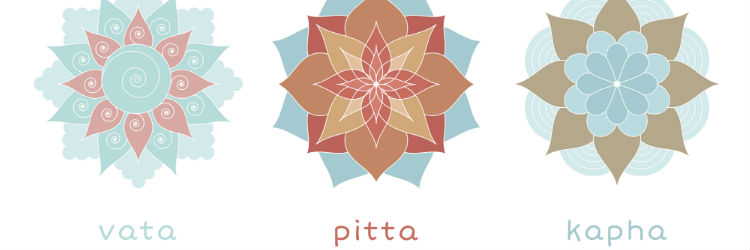A beginner’s guide to Ayurveda

Ayurveda has been around for thousands of years and is back on every health cognoscenti’s radar as the next big trend in wellness. Here Vasant Lad, world-renowned expert on Ayurvedic wisdom, provides the basic principles and how this ancient natural wisdom of health and healing helps to restore overall balance.
Ayurveda is the art of daily living in harmony with the laws of nature. It is an. The aims and objectives of this science are to maintain the health of a healthy person and to heal the disease of an unhealthy person. Both prevention (maintenance of good health) and healing are carried out by entirely natural means. According to Ayurveda, health is a perfect state of balance among the body’s three fundamental energies, or doshas (vata, pitta, kapha ) and an equally vital balance among body, mind, and the soul or consciousness.
Ayurveda is a profound science of living that encompasses the whole of life and relates the life of the individual to the life of the universe. It is a holistic system of healing in the truest sense. Body, mind, and consciousness are in constant interaction and relationship with other people and the environment. In working to create health, Ayurveda takes into consideration these different levels of life and their interconnectedness.
As a science of self-healing, Ayurveda encompasses diet and nutrition, lifestyle, exercise, rest and relaxation, meditation, breathing exercises, and medicinal herbs, along with cleansing and rejuvenation programs for healing body, mind, and spirit. Numerous adjunct therapies such as sound, color, and aromatherapy may also be employed. Ayuroeda is a Sanskrit word that means “the science of life and longevity.” According to this science, every individual is both a creation of cosmic energies and a unique phenomenon, a unique personality. Ayurveda teaches that we all have a constitution which is our individual psychobiological makeup. From the moment of conception , this individual constitution is created by the universal energies of Space, Air, Fire, Water, and Earth.
These five elements combine into the three fundamental energies, or doshas. Ether and air constitute vata, which is the energy of movement; fire and water constitute pitta, the principle of digestion or metabolism, the transformation of matter into energy; and water and earth make up kapha, the energy of structure and lubrication. When the male sperm and the female egg join at the time of fertilization, the vata-pitta-kapha factors from the parents’ bodies that are most active and predominant at the moment, due to the season, the time, the emotional state, and the quality of their relationship, form a new individual with a particular constellation of qualities.
In modern terms we speak of this blueprint of the individual as our inherited genetic code; from ancient times Ayurveda has called it our prakruti or individual constitution, a constant factor that does not change throughout life. It is our own unique pattern of energy, our combination of physical, mental, and emotional characteristics and predispositions.Though the underlying structure of our prakruti remains a fixed reality, our home base or essential individuality, it is constantly bombarded by numerous forces. Changes in age and in our external environment, alternating heat and cold as the seasons pass, our endlessly shifting thoughts, feelings, and emotions, and the quality and quantity of the food we eat continuously affect us. Unhealthy diet, excess stress, insufficient rest or exercise, and repressed emotions all disturb our doshic balance. Depending on the type of changes and the individual’s under lying constitution, various ailments may develop:
- Some individuals experience an increase or aggravation of kapha, leading to conditions such as colds, congestion, sneezing, and allergic manifestations, as well as attachment, greed, and possessiveness.
- A pitta individual may become highly critical, angry, or perfectionistic, or may develop physical symptoms such as acid indigestion, heartburn, diarrhea, dysentery, hives, rash, or acne.
- Vata imbalances may manifest as constipation, abdominal distention, sciatica, arthritis, or insomnia, along with psychological symptoms such as fear, anxiety, and insecurity.
All these illnesses and conditions, in addition to the countless others that lead to human suffering, are due to alterations in the body’s inner ecology. These upset the indi idual’s balance, creating subtle biochemical changes that ultimately lead to disease. This is why the Ayurvedic system of medicine speaks of the need for healing for every indi vidual in every walk of life.
As the internal and external conditions of our lives change, if we are going to remain healthy we need to constantly adjust in order to maintain equilibrium. Some of this adjust ing takes place automatically due to the beautiful wisdom and intelligence with which our bodies have been designed. But much demands conscious choice.
To maintain health and balance, we have to juggle with the three doshas, taking action to increase or decrease vata, pitta, or kapha as conditions demand. This requires moment-to-moment awareness, moment-to-moment consciousness, moment-to-moment healing. Thus healing-healthy, balanced, conscious living in the fullness of the present moment-is really a way of life. Ayurveda is not a passive form of therapy but rather asks each individual to take responsibility for his or her own daily living. Through our diet, our relationships, our job, our numerous responsibilities, and our daily life as a whole, we can take simple actions for prevention, self-healing, wholeness, and growth toward fulfillment.
Vasant Lad holds a Bachelor of Ayurvedic Medicine and Surgery degree and a Master of Ayurvedic Science degree. He is a world-renowned expert on the practices and health benefits of Ayurvedic medicine and has lectured at seminars and workshops.







